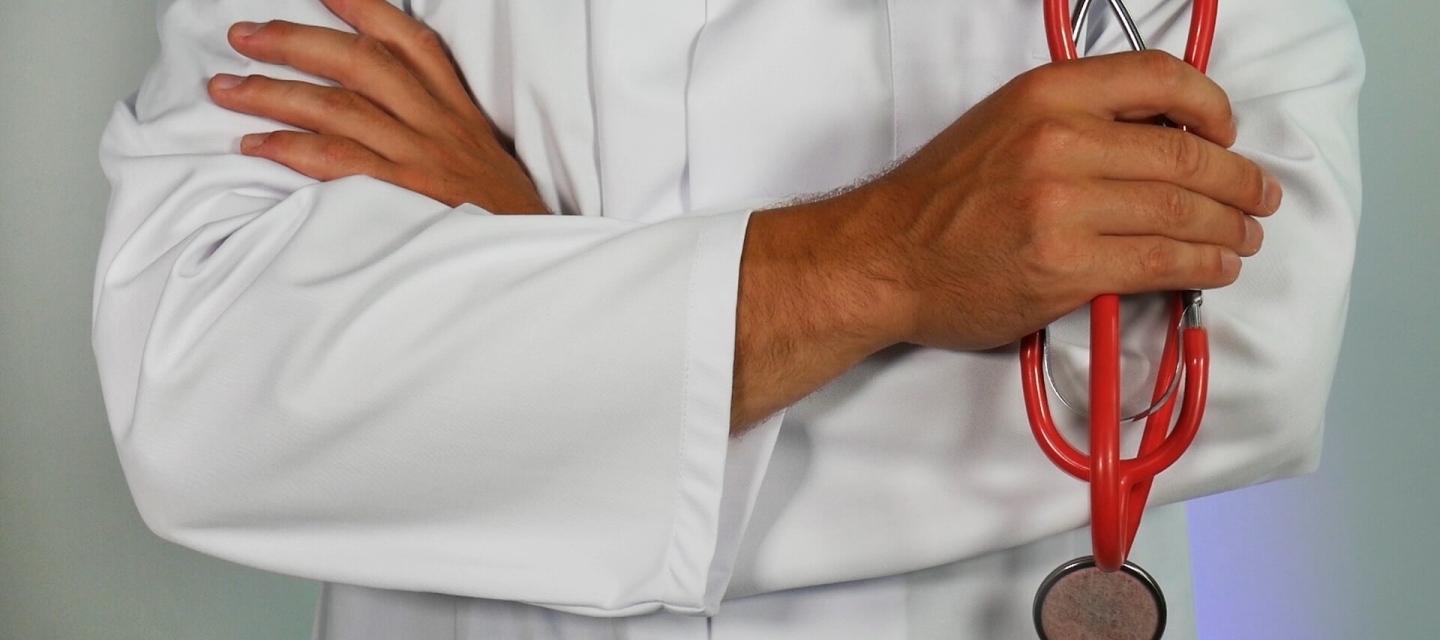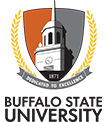
Buffalo State is a great place to begin your career journey in medicine, dentistry, and other healthcare fields.
We offer flexible degree programs that can be tailored to your specific health-career goals and provide ample opportunities for hands-on learning, professional internships, and undergraduate research experiences.
Buffalo State’s Pre-Health Advisement Committee is dedicated to mentoring students in their journey by helping to identify prerequisite courses, suggesting extra-curricular opportunities, and supporting students through the admissions process with mock interviews and letters of recommendation.
Pre-Health Advisement
Alternatives / Options
While many, many first-year students express a desire to attend medical/pharmacy/dental/veterinary school or other professional health programs, not everyone will fulfill all the requirements for such programs:
- Strong grades in pre-requisite coursework
- Appropriate extra-curricular programs and experiences
- Scoring well on admissions tests
- Completing the arduous application process
Remember this is a rigorous and challenging journey. If a roadblock arises, early intervention can guide students to tutoring or alternate programs.
Happily, many students who thought medical school was their only future have found successful careers in nursing, occupational therapy and other allied health professions.
Non-clinical careers also include: child life specialist, art therapy, patient advocate
List of alternative careers (PDF)
Record enhancers like Master’s in Public Health or Postbaccaulaureate programs may be good options.
With advisement, some students change career paths entirely. A former student wanted to be a medical doctor and open a clinic in Ghana. After a setback in science and exploring her strengths and interests, she realized she did not need to be a doctor to open a clinic. She graduated with honors with a degree in International Relations and minor in Leadership She enjoyed a study abroad experience and is currently in the Peace Corps. Because of her knowledge, skills, and experiences, she can go to Ghana, hire a doctor, and open her clinic in a different capacity.
We are here to help you.
Contact Kelly Boos SAMC 332 (716) 878-6674
Admissions Tests
Do not rush the test preparation process! Most students who do well on the MCAT (or other admissions exams) spend between 200 to 300 hours preparing for the exam. Successful test taking is a skill you will need throughout medical school and other professions that require licensing. Talk to your pre-health advisor about possible test preparation materials.
Medical College Admissions Test
Pharmacy College Admissions Test
Practice Tests and Preparation
Khan Academy is currently working with the Association of American Medical Colleges (AAMC) on a long-term solution (post-September 30, 2021) to maintain our MCAT course, including all videos and practice questions, as a free resource for students.
Free practice tests can be found on many sites. Here are some MCAT examples:
Characteristics of a Successful Medical School Application
(excerpts from: https://students-residents.aamc.org/applying-medical-school/how-medical-schools-review-applications)
Strong grades and MCAT score: “Many schools look for students who demonstrate an ability to handle challenging coursework. It is important for applicants to show that they’ve done well in upper-level science courses, and ‘doing well on the MCAT® exam shows that you can handle medical school coursework.’”
However, “Outstanding grades and MCAT scores do not guarantee that an applicant will be invited to interview. Just as important are extracurricular activities and life experiences, essays and personal comments in AMCAS, and letters of recommendation.”
Personal initiative: “Such initiative may take the form of leadership, creativity, research, community service, motivation, or other life experiences.”
Personal qualities: “Schools also look for evidence that an applicant has demonstrated good judgment, compassion, and selflessness— qualities every physician should embody. Applicants can show evidence through their involvement in extracurricular activities, letters of evaluation, and their personal statement.”
Motivation: “Each applicant needs to be as sure as possible that this is what they want to do with their life. That motivation can be demonstrated through academic achievement and also through exposure to clinical medicine and community service.”
Early Assurance Medical Programs (PDF)
Requesting Buffalo State Transcripts
Application Services
AMCAS (Medical School)
AACOMAS (Osteopathic Programs)
ADEA AADSAS (Dental School)
CASPA (Physician Assistant)
OPTOMCAS (Optometry)
PHARMCAS (Pharmacy)
PTCAS (Physical Therapy)
VMCAS (Veterinary Programs)
Your Personal Statement / Essays
Primary essay for the AMCAS Section 8. Limit of 5,300 characters, including spaces
In the case of medical school, you will write many essays! Your primary essay (AMCAS Section 8) is your most significant chance to speak in your own voice during the initial application process. This is NOT the place to list all your activities, work, and experiences. (That is Section 5 of AMCAS) You should have a compelling rationale for your motivation to attend medical school. You are telling a story that demonstrates the qualities and competencies medical schools seek in their students. You may be reflecting on lessons learned from your experiences. Do not panic if you do not yet have that “Call me Ishmael” moment. Pick some themes and elaborate. Seek help from the Writing Center, Career and Professional Education Center or your advisor. Always spellcheck, grammar check and have an advisor or mentor review your essays! Expect multiple revisions!
Secondary Application Essays and Essays for Special Circumstances
You will write different essays for secondary applications to individual schools. Follow their instructions carefully. You may write essays to explain special circumstances or disadvantaged status.
Medical School Personal Statement Ultimate Guide (25 Examples Included)
Extra-Curricular Experiences, work and activity statements AMCAS Section 5.
You may enter up to 15 experiences. You may dentify 3 of the experiences as most meaningful and describe why.
Patient interaction experiences in hospital, nursing home, rehabilitation facility or clinical settings show your knowledge of the profession and your demeanor to be a caring practitioner.
Socially relevant activities such as work with homeless shelters, soup kitchens, food pantries or with church groups demonstrate a sincere connection to humankind. Do not engage in volunteer, leadership or mentoring positions simply to pad your resume. You may have to address these in an interview.
Research, shadowing, summer enrichment programs and the like identify you are a well-rounded applicant.
Strong grades are important, especially in pre-requisite coursework. They demonstrate that you have a thorough understanding of concepts you will face in your health education.
Pre-requisites should not be taken Pass/Fail.
Almost every student has a difficult semester, especially at first. Withdrawing from an occasional course will not harm your chances of admission and a W is better than a D, E or F. Consult with your advisor and the financial aid office before withdrawing from a class. Be aware of deadlines for drop/add and course withdrawal.
Medical schools will average letter grades in repeated science coursework to determine a science GPA.
Admissions committees also look at trends in your grades, therefore a strong finish in upper-level coursework is beneficial. You should aim for an overall GPA of 3.5-3.7/4.0.
The Well Rounded Applicant
Research, shadowing, summer enrichment programs and the like identify you as a well-rounded applicant.
Patient interaction experiences in hospital, nursing home, rehabilitation facility or clinical settings highlight your knowledge of the profession and your demeanor to be a caring practitioner.
Research experiences demonstrate your passion for scientific inquiry and analysis.
Socially relevant activities such as work with homeless shelters, soup kitchens, food pantries or with church groups show a sincere connection to humankind. Do not participate in volunteer, leadership or mentoring positions just to pad your resume.
Undergraduate Research at Buffalo State
Summer Research at Buffalo State
CLIMB UP at University at Buffalo Summer Program
SUNY Pre-OP for EOP sophomores and juniors
Summer Health Professions Education Program (SHPEP)
Letters of Recommendation
https://www.shemmassianconsulting.com/blog/medical-school-letter-of-recommendation
Identify your recommenders
- Establish a rapport with faculty, mentors or volunteer supervisors early. Choose recommenders who know you as a person.
- Ask for letters from those who can write about your specific traits such as your laboratory skills, unique contributions to a class or research project or diligence, dependability or compassion in a volunteer setting.
How to ask for a recommendation
- Give them plenty of notice! Ask in person. Be prepared to waive your right to access the letter.
- To help your recommender write an effective letter, give them a copy of your transcript (unofficial), your resume and personal statement.
- In addition to commenting on your academics, ask them to highlight some of the core competencies you possess: thinking and reasoning, intrapersonal competencies, science competencies and interpersonal skills.
- Be cognizant of deadlines and allow time for your recommender to write an effective letter.
- Buffalo State LOR Request Form (PDF)
Committee Recommendation
The Pre-Health committee at Buffalo State assists students with assembling a comprehensive file and evaluative packet of letters of reference for admission to professional health schools. Deadlines are crucial! Your file will include your unofficial transcript (DegreeWorks), your personal statement, your resume of employment and all extra-curricular activities, your letters of recommendation (sent directly to the Pre-Health Staff Associate, with the signed LOR request form) and your official MCAT or other admission test score.
Committee interviews are conducted as a dress rehearsal for you and for the committee identify personal traits to be included in the committee recommendation. Common interview questions / Preparing for the interview
The Pre-Health Committee meets and subsequently evaluates each applicant by viewing the student’s entire file. A committee letter will result from this meeting and will be the cover letter to all the individual letters of recommendation when sent to the professional schools of your choosing. Your committee letter contains information on both your academic and personal qualifications. Committee review can take several weeks. Prepare your materials early!
Extra-Curricular Experiences
Undergraduate Research at Buffalo State
Summer Research at Buffalo State
CLIMB UP: University at Buffalo summer program
SUNY Pre-OP for EOP sophomores and juniors
Summer Health Professions Education Program (SHPEP)
National Summer Internships or Programs
Catholic Health volunteer form
Program pages
ADA (Dental)
AAMC (Medical)
AACN (Nursing)
ASCO (Optometry)
AACOM (Osteopathic)
AACP (Pharmacy)
APTA (Physical Therapy)
AAPA (Physician Assistant)
AAVMC (Veterinary)
Admissions Tests
Medical College Admissions Test
Pharmacy College Admissions Test
Practice Tests and Preparation
Khan Academy is currently working with the Association of American Medical Colleges (AAMC) on a long-term solution (post-September 30, 2021) to maintain our MCAT course, including all videos and practice questions, as a free resource for students.
Free practice tests can be found on many sites. Here are some MCAT examples:
Buffalo State College Pre-Health Advisory Committee Membership 2021-2023
Kimberly Bagley, Ph.D. Chair and Professor Department Chemistry
Carol DeNysschen, Ph.D. Chair and Professor Department of Health, Nutrition and Dietetics
Olga Novikova, Ph.D. Assistant Professor of Biology
Leah Panek-Shirley, Ph.D. Assistant Professor Health, Nutrition and Dietetics
Daniel Potts, Ph.D. Convener Chair and Professor Department of Biology
Sujit Suwal, Ph.D. Assistant Professor of Chemistry
Gregory Wadsworth, Ph.D. Associate Professor of Biology
Kelly Frothingham, Ph.D. Ex-officio Associate Dean School of Arts and Sciences
Pre-Health Program Manager and Advisor: Kelly Boos, SAMC 332, 878-6674 booskg@buffalostate.edu
Collaborating offices include:
Academic Success and Academic Advising

